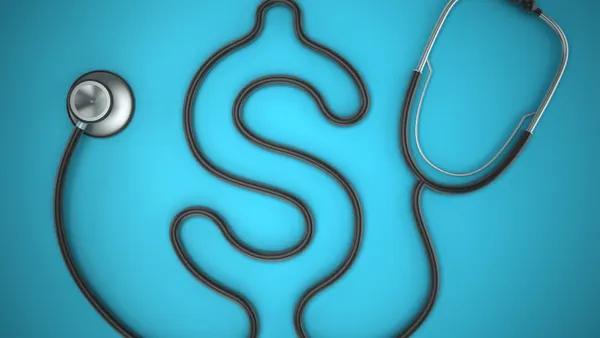Dive Brief:
- Certain Universal Health Services growth targets for 2025 are looking less achievable after the for-profit health system reported another quarter of lackluster admissions on Monday.
- Behavioral health volumes in the second quarter were essentially flat, with adjusted admissions rising just 0.4%. It’s an improvement from last quarter, when behavioral health volumes declined. However, executives now consider UHS’ plans to grow adjusted behavioral patient days by 2.5% to 3% a long-term target, instead of a 2025 goal.
- CEO Marc Miller said one of the reasons UHS’ patient day target has remained “elusive” is payers’ growing preference for outpatient care, a trend that hasn’t favored UHS’ inpatient-heavy portfolio. To be competitive in the long term, UHS plans to focus capital spending on outpatient projects, building 10 to 15 freestanding behavioral health facilities per year.
Dive Insight:
UHS raised the midpoint of its 2025 guidance after posting $353.2 million in net income on $4.3 billion in revenue in the second quarter.
The King of Prussia, Pennsylvania-based provider now expects to take in between $17.09 billion and $17.31 billion in revenue this year, compared to its prior range of between $17.02 billion and $17.36 billion.
UHS attributed the change to the approval of a Medicaid state supplemental payment program in Tennessee, which accounted for roughly $101 million of the system’s guidance raise, and the opening of West Henderson Hospital in Las Vegas.
However, problems receiving Medicaid certification and other start-up issues in its newly opened Cedar Hill Regional Medical Center in Washington, D.C., tempered the guidance increase by about $25 million, CFO Steve Filton said on a Tuesday call with investors.
The modest lift in UHS’ financial forecast was mostly overshadowed by investor concerns about the operator’s volumes.
UHS’ acute care unit didn’t fare much better than behavioral, with adjusted admissions rising just 2% and surgical volumes “slightly” down year over year, according to Filton. The modest growth in both behavioral and acute volumes underperformed analysts’ expectations, according to a Tuesday note from Morgan Stanley.
Executives blamed lower volumes on numerous factors including staffing challenges, as well as the slower-than-expected opening at Cedar Hills. UHS’ behavioral business has also suffered from payers shifting care to cheaper outpatient sides, a trend that’s proved tricky for the company as it’s historically focused on inpatient care.
UHS is the latest health system to report poorer-than-expected patient volumes during the second quarter, though health systems disagree on the reason behind the trend. CHS said consumers are less interested in spending on healthcare in an unstable economy, HCA blamed slow growth in public payer programs and Tenet brushed it off as a product of seasonal changes.
UHS said it hopes to ultimately capture more volumes by opening behavioral centers and referring more inpatient cases to UHS outpatient providers for so-called “step-down” services.
“A number of the insurance companies, as they have been talking about their increase in medical loss ratios, have pointed to the increase in spending on behavioral care,” Filton said. “We believe that a significant chunk of that increase is in outpatient, and we are determined to get a larger share of that, I'll call it, ‘outpatient pie’ as we go forward.”
Executives also commented on how the recently passed “Big Beautiful Bill” will impact UHS’ business over the coming years. Starting in 2028, the federal government will cap provider taxes and state directed payments in Medicaid, which previously have boosted the health system’s revenue.
UHS said the changes could cost it between $300 to $400 million by 2032 if the law is carried out as currently outlined. Miller cautioned that this is a worst case scenario and one he hopes to avoid.
“In talking with all the folks in D.C., representatives from many of the states we cover, they are starting to recognize what they passed can’t be left as is because of the effect on some of the healthcare programs in their state,” he said.
Still, Filton said that UHS will be ready for potential changes, noting the company weathered similar headwinds during the COVID-19 pandemic. The CFO said UHS would consider headcount reductions and other spending cuts if necessary.
“We have great confidence in our ability to shift and be flexible, especially with several years of notice and preparation that we'll have this time around,” Filton said.












